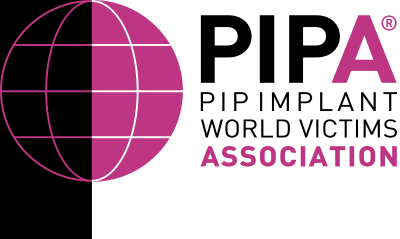On July 1, 2020, the first “post expertise” hearing is held before the Commercial Court of Toulon on behalf of victims of the PIP breast implant scandal.
We remind that the Toulon court has already condemned the certifier TUV Rheinland three times. A provision of 3000 euros had been granted and the judges had mandated two medical experts (Professor Dominique Casanova and Dr. Antoine Alliez) to evaluate the damages suffered by each of the victims and allow the court to decide on the final amounts.
In March 2020, the experts decided on the principles for assessing the damages and issued their first final reports for a first group of patients. Olivier Aumaître, the victims’ lawyer, was thus able to formulate individually quantified compensation claims. This is the first time in this part of the case.
The medical experts used the “Dintilhac” nomenclature. This is the reference for the assessment of personal injury and has generated a rich jurisprudence. Using a logarithmic scale (from 1/7 to 7/7) it is possible to estimate with a certain degree of accuracy the amounts that will be awarded to each patient according to the complications suffered.
The Experts retained that any patient with a PIP implant had suffered a moral prejudice of permanent anxiety, ranging from 2 to 3.5 on the Dintilhac scale, corresponding to amounts ranging from 6,000 to 25,000 euros.
For Olivier Aumaître: “this is an important victory that we have won, and a major fact that ensures each woman victim a minimum compensation for a moral prejudice of anxiety qualified as permanent, excluding the risk of statute of limitation”.
Added to this are the suffering endured (multiple operations, complications such as siliconomes, respiratory insufficiencies after migration of the silicone into the lungs, various pains, etc), aesthetic damage that is often permanent; past or future health expenses.
The experts note that patients will have to be medically monitored for life.
For the first group of patients, the compensation varies, depending on the situation of each victim, from 17,000 to 70,000 euros, bearing in mind that some victims have very serious cases. Olivier Aumaître underlines that “with time, the dangerousness of the PIP gel appears more and more probable”.
With an average compensation estimated at 40,000 euros, the bill could exceed one billion euros for the German quality assurance giant. This total remains relatively low since less than 10% of the victims (estimated at 300,000 worldwide) have so far made a claim for compensation. It should be noted that legal proceedings are still ongoing and victims can still join them by registering on the PIPA platform (www.pipaworld.com).
Moreover, these compensations remain low in view of the ordeal endured by the patients:
- 50% of them have suffered a rupture of their prostheses;
- 30% will remain with a siliconome until the end of their life (silicone “balls” in the body generally causing inflammation of the lymph nodes);
- 10% of the victims must continue to live with ruptured implants because of the lack of means to have them removed;
- for nearly 60% of the victims, the permanent anxiety and anguish caused led to a depressive episode;
- hundreds have respiratory deficiencies after the silicone reached their lungs.
According to PIPA’s lawyer, who calls for the German giant and its insurers to come to the negotiating table “10 years after the scandal broke, the time has undoubtedly come to turn the page on this affair by mutual agreement, as the giant Bayer/Mosanto has done in another area”.
After the Court of Justice of the European Union (CJEU) ruled on June 11, 2020 that patients could not turn against the PIP insurer (Allianz), the path opened by Olivier Aumaître and the PIPA association 10 years ago probably represents the only possibility of compensation now still open to victims.
It is, moreover, the one followed in France by the Social Security which is claiming nearly 20 million euros in expenses from TÜV Rheinland, and by a German insurer (AOK), whose admissibility of the claim against TÜV Rheinland was recognized on February 7, 2020 by the German Supreme Court (Bundesgerichhof).
